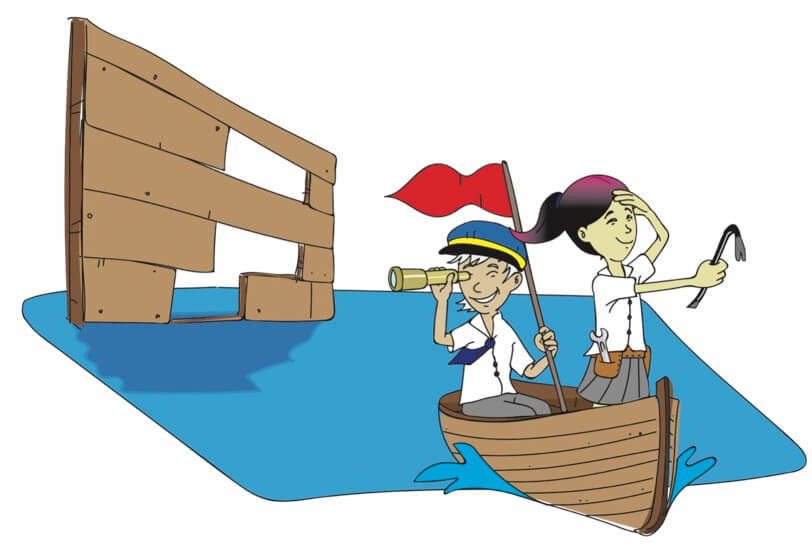ABC of INQUIRY – INQUIRY
ABC of INQUIRY – INQUIRY “What else should our lives be but a continual series of beginnings, of painful settings out into the unknown, pushing off from the edges of consciousness into the mystery of what we have not yet become, except in dreams that blow in from out there bearing the fragrance of islands we have not yet sighted in our waking hours, as in voyaging sometimes the first blossoming branches of our next landfall come bumping against the keel, even in the dark, whole days before the real land rises to meet us.” An Imaginary Life’ by David Malouf
INQUIRY: A chance to push off…
Teachers and students are part of the same learning community, they are co-researchers.
Being an inquirer, means exploring, investigating and reflecting on an idea, perspective, belief, understanding, etc to take your understanding deeper. It involves understanding the relationship you have with people, ideas, places, things, etc and how you position yourself in relationship to discovery and possibility.
Inquiry involves the deconstruction of ideas and constructivists approaches to exploring, reflecting, testing and acting on the various aspects of topic.
Inquiry is a process of thinking, acting and reflecting. There are many ways to move through this process, it is continuous and spiral like.
Inquiry enables learners to become active agents in the learning process, they are not passive receivers or vessels to be filled, the learners are positioned as curious, capable constructors, developing and building the ideas they will take with them into the world beyond the classroom.
Inquiry relies on new ideas and understandings being developed and built on the back of prior knowledge and experiences.
Inquiry involves both the learner and teacher exploring and valuing the multiple ways of positioning oneself in the face of problems and possibilities. It involves the learner’s ideas and relationships with different attitudes and interests being valued and used as part of the learning frameworks
Inquiry involves developing skills and knowledges that will lead to bigger timeless ideas or conceptual understandings.
Inquiry leads to the learner having ownership of ideas that connect to form big picture, timeless conceptual understandings. These conceptual understandings are rigorous and richly understood, and they will become the scaffold frameworks for adaptive thinking and action.
Inquiry is active learning, the valuing of mistakes followed by careful reflection in order to become an informed decision maker.
Inquiry is constructivist learning, it involves inductive teaching, careful and thoughtful reflection and needs teachers to be open to having ideas challenged. The power they hold in a learning relationship to be scrutinised and a willingness to be life-long learners themselves.
Babies who experiment with sounds as they develop their words are inquiries. Two year olds who ask ‘Why’ and make messes are inquirers, they are on a voyage of discovery. Thirteen year olds who push boundaries and test out being mavericks are being inquirers, they are not accepting and passive but active and curious, driven by passions, interests and attitudes that they are forming based on their own experiences. Parents are inquiries constantly seeking ways of doing things that build relationships and developing ethically robust children, who will become the policy makers of tomorrow. Ninety-nine year olds are inquiries as they look at life and continue to act and reflect based on prior knowledges and experiences. Gardeners, cleaners, builders, philosophers, scientists or any one engaged in finding out the particularities of any given ‘something’ in an attempt to build understandings are inquirers.
Inquiry teaching and learning is for all ages. It doesn’t require specialised equipment or spaces, it requires an openness and a willingness to be curious,explore and reflect.
All Rights Reserved © 2018 Beconwiz All ideas and illustrations are the property of BeConWiz.

BeConWiz Ideas and Thoughts by Carla Holmes, Mary-Denese Holmes, Pearl Holmesis licensed under a Creative Commons Attribution-NonCommercial-NoDerivatives 4.0 International License.
Based on a work at https://beconwiz.com.
Permissions beyond the scope of this license may be available at https://beconwiz.com.
